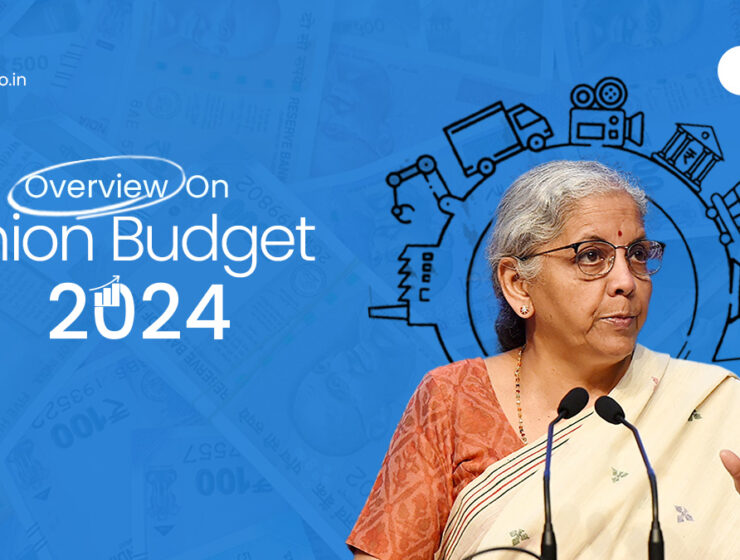

Loans are a great responsibility for any person – be it any type of loan. Loans such as auto loans and home loans have a substantial tenure too that makes reimbursement a truly problematic and tedious routine task. The selection of the type of loan solely depends on the financial requirement for which you need the loan.
Hence, customers can’t choose loans on the basis of the tax benefits they offer. A loan aids you in fulfilling requirements such as financing your kid’s education or buying a house but the repayment of this loan including the interest influences your monthly as well as annual finances for other expenses.
However, one of the most important imperative sides of loans is that many of these loans give income tax benefits to clients. The government of India provides tax benefits for individuals who take loans and these benefits differ depending on the type of loan taken. The tax saving angle is an additional advantage of loans.
According to different sections of the Income Tax Act, 1961, loans can be utilized as tax saving method and offers different types of tax benefits to people who repay their loan. Loans can be definitely be used to cut back on the income tax amount that an individual or a business house pays every year to the government. The various tax benefits on different loans is described below:
- Tax Exemption On Education Loans
The government has taken different measures to promote higher education and people are becoming aware as well as ready to go out of the country for further studies. However, the expenses for education, particularly for professional courses like engineering and medicine is still very high. This is true for both domestic and overseas courses. The increasing competition for employment in the country ensures that the financial problems do not impede people from getting a higher education. This is where education loans come into the picture. Many public and private sector banks offer education Loans for higher and professional education. Public sector banks have different promotional schemes too on education loans in order to promote higher education on convenient and easy terms.
The most important aspects of tax abatement on education loans are:

- Tax benefits on education loans are provided under Section 80E of the Income Tax Act
- Tax benefits are valid only when the education loan is taken from an approved bank or financial institution.
- Higher education loans are provided for courses that any person has decided to choose after completing his/her senior secondary school level, in India or abroad
- The tax deduction is eligible only if the interest is paid towards education loan repayment.
- Tax benefits on education loan can be taken for maximum 8 years or for the full loan repayment duration, whichever is earlier.
- You can claim tax deduction on the maximum interest amount (no limits)
- Deduction on interest for education loan can be claimed for the higher education of self, spouse and children.
- Education loan could be for a full time course or part time.
- Tax Exemption On Home Loans
Home loans are one of the colossal financial obligations that customers in India avail. The amount and tenure of the home loans are massive along with the large sum of money (loan installment) that customers have to pay. However, the customers get great tax benefits on home loans.
The most important aspects of tax abatement on home loans are:
- Tax deduction is eligible for both principal and interest amount paid on home loan
- The Tax benefit on home loan principal repayment is offered under section 80C of the Income Tax Act. Maximum deduction amount allowed is Rs.1, 50, 000.
- Tax deduction for home loan are applicable only when the construction of property is complete and not during the term when the property bought under construction
- The tax rebate is not valid for customers who invest in properties that are under construction (not until the construction is completed). Such customers are, however, have to pay service tax on the loan that they have taken to purchase the property
- Not only principal, but interest paid on a home loan is also allowed as a deduction. Under Section 24, there is a maximum of 2 lacs deduction which is allowed for loans on self occupied property. Also, there is no maximum limit applicable for deduction towards the property which is let-out. However, in one financial year, you can claim maximum of 2 lacs only and remaining has to be carried forward to next year. This carry forward is allowed up to 8 years.
- There is an additional benefit of 50,000 available for claiming interest on home loan under 80EE. To claim this deduction, the amount of loan taken should be Rs 35 lakhs or less and the value of the property should not exceed Rs 50 lakhs. The loan must have been sanctioned between 1st April 2016 to 31st March 2017. And on the date of sanction of loan, individual does not own any other house.
- If you are not claiming deduction under section 80EE, then you can claim additional deduction of 150000 under section 80EEA subject to certain conditions. To claim this deduction, the stamp value of the property does not exceed Rs 45 lakhs. The loan must have been sanctioned between 1 April 2019 to 31 March 2020. And on the date of sanction of loan, individual does not own any other house. The individual should not also be eligible to claim deduction under section 80EE.
Hence, now while buying your first house on a loan will accompany you with multiple benefits. The deductions won’t only reduce your tax outgo but eventually will help you in dealing your cash flows.
- Tax Exemption on Auto/Car Loans
Cars fall under the classification of luxury items and hence no tax benefit is provided to salaried individuals who avail car or auto loan for buying of a vehicle.
The most important aspects of tax abatement on auto/car loans in India are:
- Any kind of tax benefit is not offered on Car loans availed by individual salaried class.
- For business individuals, where car is being used for business purposes, the interest pain on car loan is allowed to be treated as expense to reduce taxable profits.
- Under section 80C of the Income Tax Act, tax deduction is valid for Car loans availed by self-employed individuals for vehicles which are used for commercial purposes.
- Tax Exemption On Personal loans
Tax exemption on personal loans availed by customers is applicable only when the loan is required for business purposes. Besides this specific case, personal finance does not provide any kind of tax rebate to customers. Yes, we can say ultimately say that personal loans are one of the best options to deal the urgent requirements for funds. If use properly you can surely call it as tax saving instrument.
Along with this, businessmen can even get the advantage of deductions on personal loans too under specific conditions, as in when the loan is taken as business loan or the loan for capital investment in business. Moreover, note down that the loans that are taken wisely and in the limit would help you to never fall for never-ending debt spiral. Awesome, isn’t it?
We can help you plan your taxes by using your EMI payments whether it is for home improvement or house loan or education loan. You may get in touch with our tax experts for consultation for any of your queries.
A financial planning platform where you can plan all your goals, cash flows, expenses management, etc., which provides you advisory on the go. Unbiased and with uttermost data security, create your Financial Planning without any cost on: http://bit.ly/Robo-Fintoo
Disclaimer: The views shared in blogs are based on personal opinion and does not endorse the company’s views. Investment is a subject matter of solicitation and one should consult a Financial Adviser before making any investment using the app. Making an investment using the app is the sole decision of the investor and the company or any of its communication cannot be held responsible for it.
Related Posts
Stay up-to-date with the latest information.


